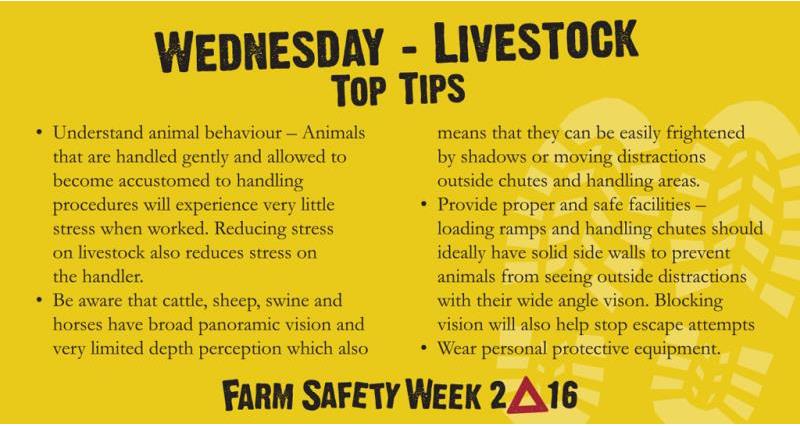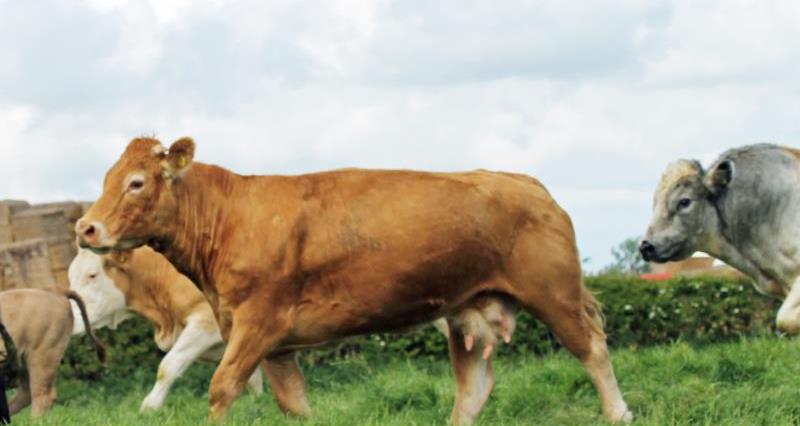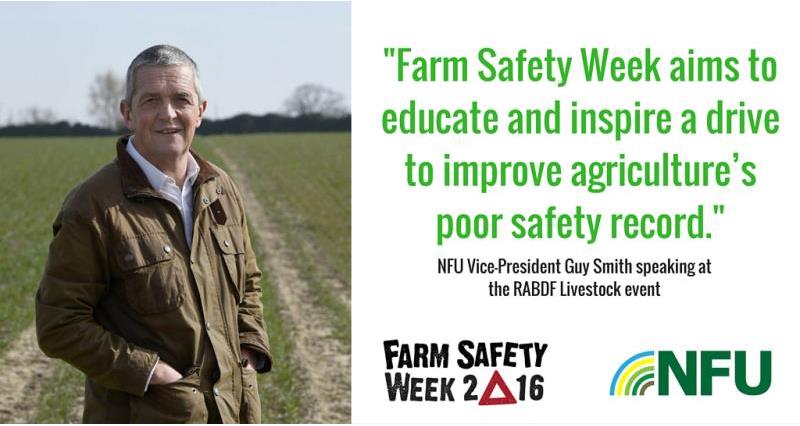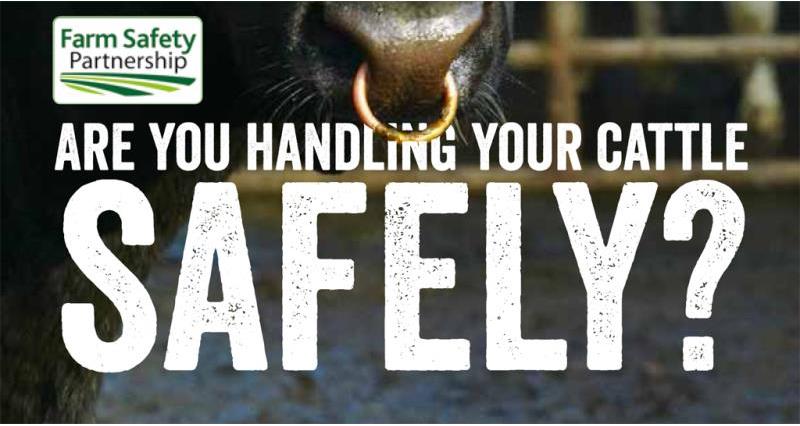Handling cattle always involves risks, the risk of being hurt physically by an animal that is frightened or has been startled and the risk of being hurt due to the misuse of equipment or equipment that is poorly maintained.
Many farmers never stop to consider why animals behave as they do and, more importantly, what this behaviour could mean to their personal safety. Animal-handling practices are often inherited from watching others and from personal experiences growing up on the farm. Too often, this results in unsafe livestock handling and restraint practices.
Although most animal incidents are not fatal, many men, women and children are needlessly injured every year due to a lack of safety awareness. Broken bones, crushed and mashed limbs, work absences and unnecessary medical expenses are some of the results of livestock-related incidents.
Today, the Farm Safety Week team is challenging farmers to think about improving livestock handling systems and making them safer and more efficient.
NFU Vice President and Farm Safety Partnership member Guy Smith said: “Over the course of this week, we have five days, five themes and five countries with one very clear question – Have you thought about ‘Who Would Fill Your Boots?’ if you were to have a farm accident.
“Today it’s all about animals. Livestock can be unpredictable, something that Liskeard farmer Stephen Pearce (see below) knows all too well...

“Farm Safety Week is the ideal opportunity to call out to all farmers to work safer and smarter around livestock. People tend to give animals human qualities and forget that animals quickly revert to primal reflex actions when they are threatened or under stress. Animals will fiercely defend their food, shelter, territory and young. When frightened or in pain, animals may react in ways that threaten their, and our, safety.
“Facilities, too, can play a major role in preventing incidents. Good facilities provide a means of controlling animals while allowing easy access for routine chores - all in a safe environment. Often we don’t make adjustments or modify our equipment to make it safer because we are in a hurry or for economic reasons we feel that we should ‘make do’ with what we’ve got.
“There needs to be an element of common sense and safety involved in these decisions – ‘because I’m in a hurry’ is not a good enough reason for poor maintenance of equipment and facilities. Safe handling equipment is more of an investment than an expensive luxury.
‘There was nothing to hint at what was to come’ – Stephen’s story
Father-of-two 58 year old Stephen, who lives and farms with his wife Angela on their farm near Liskeard, Cornwall, considers himself extremely fortunate to have survived an incident with a group of 75 Simmentals on 13 March this year.
He recalls: “It was a Sunday morning and I went as normal to scrape the yards and place silage in the feeders. I opened the gate for the cattle to go into the smaller lower yard like every other day so I could scrape out. The cattle were quiet and around 15 Simmentals had walked quietly down into the lower yard when I noticed a young heifer was in season.
“Like many times before, I needed to identify the ear tag number so quietly approached the group of cattle. Meanwhile the remaining group of Simmentals were unexpectedly spooked for no apparent reason (it could have been a butterfly!). There was nothing to hint at what was to come…

“Suddenly the cows in the top yard were racing towards me at what seemed to be 100 miles an hour. I had nowhere to go and knew that I was in serious trouble. My initial thought was to try and stay standing but it was to no avail.”
Stephen was knocked over by the stampeding cows and trampled on. He managed to extract himself from underfoot and made his way to his tractor where he realised that he couldn’t use his arm. His wife Angela drove him to A&E where doctors X-rayed him and declared his arm broken in three places.
“It wasn’t their fault,” Stephen is quick to point out.
“They set each other off and, to be honest, I think I got off lightly as I know others who have been less fortunate in this situation.”
In the wake of the accident, Angela was marvellous and helped where possible but there were many jobs Angela was unable to do such as driving the straw chopper or carrying heavy feed bags so Stephen enlisted the help of Ben, a young farmer who was able to come in every day for seven weeks. “Many times we heard Ben using the tractor at 5.30am so he could be in the contractors yard by 7am.
“Our neighbours were wonderful and rallied around to help with fertilising and ploughing,” adds Stephen.
“We also had some pedigree Simmental calving so to ensure they had the best attention we did have to spend considerably more on vet fees.”
Stephen admits that they had been in a position to alter the housing system for the Simmentals before, it is unlikely that this accident would have happened. He had hoped to have obtained grant funding to move away from an open yard once used for the dairy cows to a penned housing system so cattle could have been safely housed in age groups but none was available. The financial cost initially made this impossible but now they will redevelop the unit.
“After all what price can you put on your health?” added Stephen.

